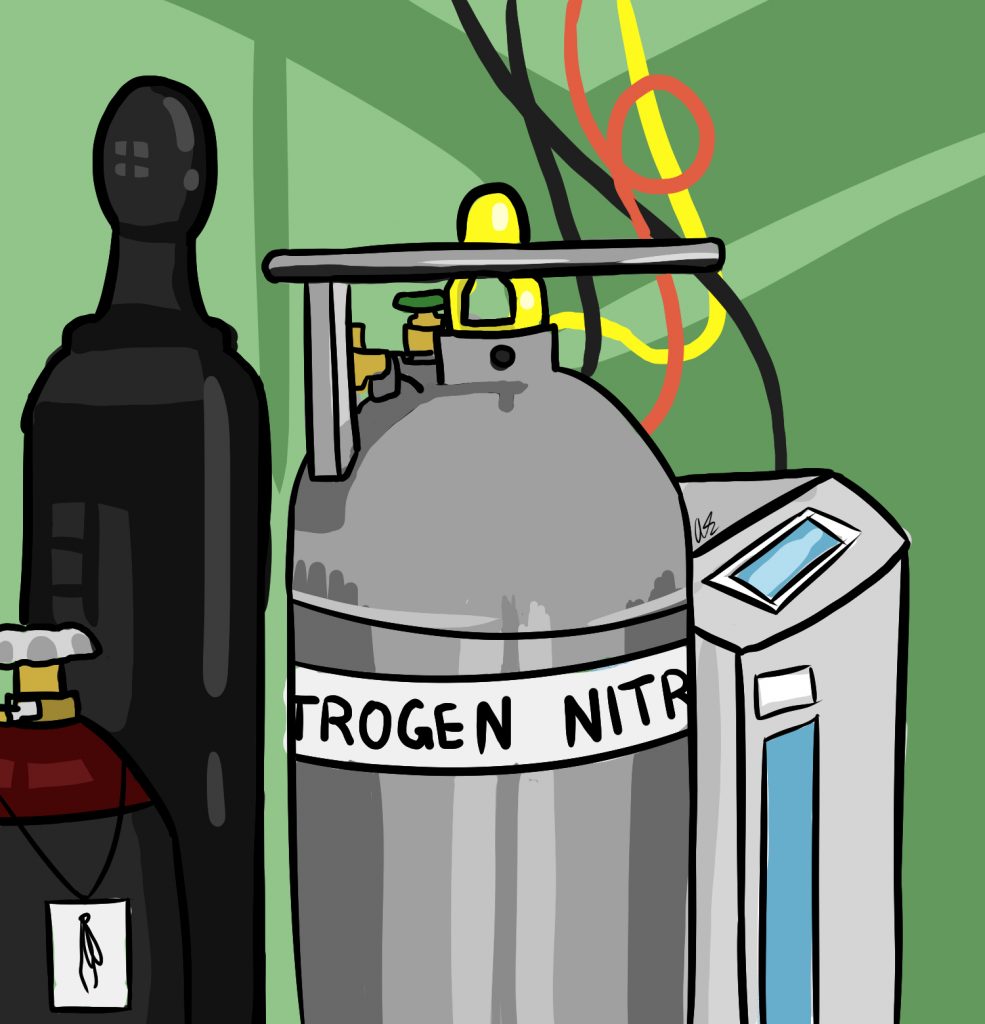
Binghamton University’s School of Pharmacy and Pharmaceutical Sciences (SOPPS) began classes in its new Johnson City location last week, but not everything has made the transition.
Most of the school’s research laboratory equipment is still being housed in the Innovative Technologies Complex (ITC) despite pharmaceutical studies beginning at the health sciences campus.
After construction on the SOPPS building finished this summer, faculty and staff started moving in on July 16. Equipment also started making the move, but not everything arrived before the start of the semester. Now, students have to travel between the Johnson City and Vestal campuses to attend traditional classes and conduct research.
The two campuses are approximately three miles away from each other, but without a car, getting from one to the other can be difficult. Currently, one Off Campus College Transport (OCCT) route stops near the Johnson City campus: the Leroy Southside, which stops once every hour on weekdays from 5 p.m. to midnight. Students who wish to travel from Johnson City to the ITC outside those hours are forced to rely on personal vehicles, Broome County Transit buses and ride-share services.
According to Gloria Meredith, founding dean of SOPPS, it will take four to six months to complete the move to the health sciences campus. She said everything should be set up by Christmas.
“Our researchers are moving large, delicate pieces of equipment,” Meredith wrote in an email. “They need the company that supplied the instruments to be involved with dismantling and re-setting up each instrument. This takes a lot of time.”
Experiments and research will eventually need to temporarily stop in order to make the move. Nevertheless, the research will continue until the equipment move begins, according to Jacqueline Haugen, a research assistant at SOPPS and a first-year graduate student studying biomedical engineering.
“While it’s definitely not ideal to have to put a halt on all of our experiments, it’s something that everyone has been preparing for and we plan to handle it in a very organized fashion,” Haugen wrote.
Although research will have to momentarily cease to complete the move, Haugen wrote that the new laboratories at the health sciences campus will allow students and faculty to conduct experiments more efficiently.
“We’re really excited about the move because our current lab space in the ITC is kind of cramped and the new lab space is amazing,” Haugen wrote. “Currently we all just share one lab space. There are two floors in the pharmacy building that have individual rooms for different types of shared equipment and several individual rooms of lab space that’s split between two professors each.”
Not all students are directly affected by the late move. First-year pharmacy students do not take lab or research courses during their first semester. Other students haven’t started their research for the semester. Lamiyah Kamal, a second-year graduate student studying pharmaceutical sciences, is planning to begin her research on colon and rectum cancer cells later in the year.
“In terms of research, it hasn’t really affected much yet since it’s the beginning of the semester,” Kamal said. “However, I’m not too concerned with it being a hassle since the labs should be on track to be finished by the end of the semester.”


